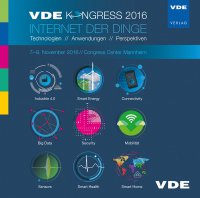Using VOC Sensors and the Internet of Things to Improve the Energy Efficiency in Smart Buildings
Conference: VDE-Kongress 2016 - Internet der Dinge
11/07/2016 - 11/08/2016 at Mannheim, Deutschland
Proceedings: VDE-Kongress 2016
Pages: 6Language: englishTyp: PDF
Personal VDE Members are entitled to a 10% discount on this title
Authors:
Grabowski, Matthias; Kochanneck, Sebastian; Mauser, Ingo; Schmeck, Hartmut (Institute of Applied Informatics and Formal Description Methods (AIFB), Karlsruhe Institute of Technology (KIT), 76131 Karlsruhe, Germany)
Henning, Hans-Martin (Institute of Fluid Machinery (FSM), Karlsruhe Institute of Technology (KIT), 76131 Karlsruhe, Germany)
Abstract:
This paper presents a system that increases the energy efficiency in smart buildings by using volatile organic compound (VOC) sensors. Evaluations in a real smart building demonstrate the system’s capability of detecting and predicting the presence of users in the building as well as controlling the heating and air-conditioning system in a way that reduces the energy consumption and increases energy efficiency by means of machine learning methods. Main advantages of this approach include the protection of the users’ privacy, because the users do not have to carry radio beacons that make them identifiable, and an occupancy detection that is not solely based on motion, which fails if there is no movement and may not estimate the number of present users. The system manipulates the set points of the heating and air-conditioning system to avoid unnecessary space heating and cooling in case of user absence and increases the building’s energy efficiency.


